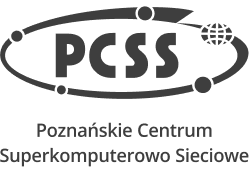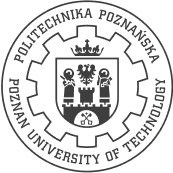MOSAIC RESEARCH PLATFORM
Platform utilizing artificial intelligence for integrating and analyzing multiomic and clinical data to obtain new knowledge and tools for widely accessible, personalized preventive, diagnostic, and medical therapeutic practices.
Planned Effects
The MOSAIC platform will enable the use of AI to understand the pathomechanisms of selected diseases better, identify specific biomarkers for them, and develop new therapeutic strategies. The advanced AI algorithms will support decisions regarding the diagnosis and treatment of patients.
The MOSAIC Platform will apply AI algorithms to:
- Deep understanding of disease pathomechanisms
- Support clinical decisions
- Create new personalized therapies
The MOSAIC Platform will apply AI algorithms to:
Pathomechanisms
Better knowledge pathomechanisms
Identification
Identification of specific biomarkers
Therapies
New therapeutic strategies
Planowane efekty
Deep understanding of disease pathomechanisms
AI support for clinical decisions
Development of interceptive medicine
CategoryTechnologies
CategoryMultiomics
Transcriptomics
explores the complete set of RNA transcripts produced by a cell or organism. It unveils the dynamic expression of genes, shedding light on cellular activities and responses. By deciphering the transcriptome, researchers gain a deeper understanding of how genes are regulated and function in various biological processes.
Genomics
Genomics is the study of an organism's complete set of DNA, encompassing all of its genes. It provides insights into the genetic variations that contribute to traits, diseases, and evolution. Genomic studies employ cutting-edge technologies to decode the order of nucleotides in DNA, revealing the blueprint of life.
Epigenomics
Epigenomics investigates the modifications to DNA and its associated proteins that control gene expression without altering the underlying genetic code. This field delves into the intricate regulatory mechanisms, offering insights into how environmental factors and lifestyle influence gene activity. Understanding epigenetic patterns is crucial for unravelling the complexity of diseases and development.
Proteomics
Proteomics examines the entire complement of proteins within a cell or organism. Researchers gain insights into cellular functions, signalling pathways, and disease mechanisms by identifying, quantifying, and characterizing proteins. Proteomic studies play a pivotal role in advancing our understanding of the functional dynamics of biological systems.
RESEARCH AREAS
Cardiology
Cardiac diseases pose a significant global health challenge, impacting millions. Conditions like CAD, heart failure, and arrhythmias are major contributors to morbidity and mortality. Understanding genetic factors, such as mutations in LDLR and MTHFR genes is crucial for targeted interventions to mitigate the disease impact.
RESEARCH AREAS
Oncology
Oncology is of paramount importance in the realm of healthcare due to the pervasive impact of cancer globally. Cancer, a leading cause of morbidity and mortality, touches the lives of millions, emphasizing the urgency of effective strategies. The intricate nature of cancer necessitates a multidisciplinary approach involving medical, surgical and radiation oncologists.
The project to create the MOSAIC intelligent platform is carried out by the European Center for Bioinformatics and Genomics consortium consisting of:





Write to us and find out more!
